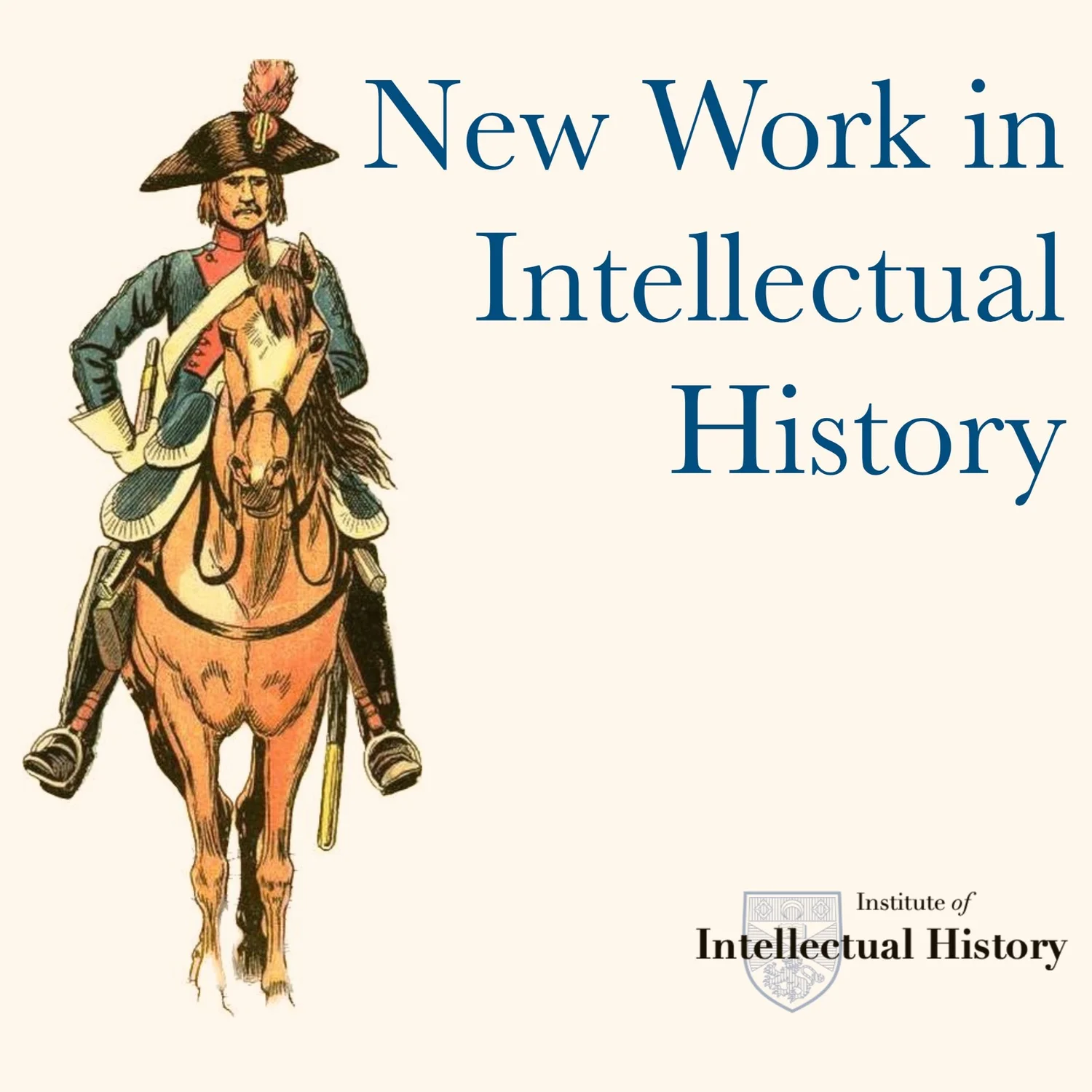

New Work In Intellectual History
Institute of Intellectual History
Listen to interviews with intellectual historians about recent research and new publications.
Episodes
Mentioned books

Nov 14, 2025 • 0sec
The Rise and Resilience of the Polish-Lithuanian Republic
Professor Robert Frost, Burnett Fletcher Chair in History at the University of Aberdeen, dives into the fascinating Polish-Lithuanian Union from 1385 to 1569. He discusses why he chose to focus on this historical political union, the unexpected expansion of his project into multiple volumes, and the collaborative efforts among historians to recover shared histories of the region. Frost also explores the Republic's unique consultative structures, military effectiveness, and the impact of Enlightenment ideas on reforms that shaped this complex political landscape.

Oct 22, 2025 • 0sec
Sectarianism in Philosophy
What is the relation between philosophy’s claim to disinterested universal
rational inquiry and its historical existence as an assemblage of
apparently sectarian schools? This is the question that formed the topic
for a conversation that Valery Vino initiated with Ian Hunter.

Jul 20, 2025 • 0sec
Odious Debt: Bankruptcy, International Law, and the Making of Latin America
In this episode, Derek van Voorst speaks with Dr Edward Jones Corredera,
who is senior research fellow at the Max Planck Institute for Comparative
Public Law and International Law and assistant lecturer at the Universidad
Nacional de Educación a Distancia (Madrid). The discussion focused on his
recent book, Odious Debt: Bankruptcy, International Law, and the Making of
Latin America (OUP, 2024), although it also covered topics such as the
theoretical framework of 'odious debt', historical debt, future
developments of debtor nations, and so forth.

Jul 1, 2025 • 0sec
#1. Richard Whatmore, can Intellectual History save liberty?
Roots and Branches: First episode out now.
Intellectual Historian Richard Whatmore (University of St Andrews) explains
why the Enlightenment, 18th century republicanism and the history of free
states matter for today’s global politics.
Subscribe to Roots and Branches on Spotify or iTunes by visiting the
Episode Website below.

Jun 29, 2025 • 0sec
Introducing Roots and Branches
Get ready for Roots and Branches, the new ideas podcast from the Institute
of Intellectual History at the University of St Andrews. In this
introductory episode, host Selma Sondern explains what Intellectual History
is, why it matters, and what to expect when Roots and Branches launches on
1 July 2025 with Prof Richard Whatmore. Subscribe to the podcast on
Spotify and iTunes by visiting the Episode Website below.

Apr 9, 2025 • 0sec
Classics of Historiography in Historical and Global Perspective
Davide Cadeddu, a Professor of History of Political Thought at the University of Milan, dives into the significance of classic texts in historiography as mirrors of their times and tools for modern insight. He discusses how historiographical classics evolve, reflecting community identities and fostering cross-cultural dialogue. Cadeddu contrasts views on imperial history, particularly between Italian and British perspectives, while sharing his academic experiences across Europe. He also touches on the influence of E. H. Carr and the challenges of integrating diverse scholarship.

Jan 1, 2025 • 0sec
The Question of Unworthy Life: Eugenics and Germany’s Twentieth Century
The dark history of eugenic thought in Germany from the nineteenth century
to today―and the courageous counter-voices.
In this episode, Robin Mills speaks with Dagmar Herzog about her new book
The Question of Unworthy Life: Eugenics and Germany’s Twentieth Century
(Princeton University Press, 2024). Between 1939 and 1945, Nazi genocide
claimed the lives of nearly three hundred thousand people diagnosed with
psychiatric illness or cognitive deficiencies. Not until the 1980s would
these murders, as well as the coercive sterilisations of some four hundred
thousand others classified as “feeble-minded,” be officially acknowledged
as crimes at all. The Question of Unworthy Life charts this history from
its origins in prewar debates about the value of disabled lives to our
continuing efforts to unlearn eugenic thinking today.

Dec 1, 2024 • 0sec
Anticlerical Legacies
In this episode, Robin Mills speaks with Elad Carmel about his new book
Anticlerical Legacies - The deistic reception of Thomas Hobbes, c.
1670–1740 (Manchester University Press, 2024). The conversation touches
upon a wide range of topics related to 17th-century religion, reception
history, and deism.

Oct 28, 2024 • 0sec
The Holy Alliance - Liberalism and the Politics of Federation
In this episode, Seungeun Lee speaks with Isaac Nakhimovsky about his new
book The Holy Alliance: Liberalism and the Politics of Federation
(Princeton, 2024).
The book challenges the prevailing view of the Holy Alliance as a
reactionary and illusory endeavor, as well as the idea of a linear
progression of liberalism in opposition to such deviations. Nakhimovsky
reconstructs the discourse around a liberal vision of a European
federation, where reformers and patriots from smaller European states, as
well as abolitionists beyond Europe, looked to Russia as the potential
guarantor of a peaceful order.

Oct 20, 2024 • 0sec
Edmund Burke
In this interview, Ross Carroll (Dublin City University) talks about what's
new and interesting in scholarship on Edmund Burke, following writing a new
introduction to the great Irish thinker for Polity's Classic Thinkers
series.


